Your search “Keep%20ethe%20eDeacth%20ePenalty%abolished%20ein%20ethe%20ePhilippfines%20e%20e%20e%20e%20e%20e%20e%20e%20e%20e/page/www.humanrights.asia/resources/report/20e11/AHRC-sur-008-20e11/act_download/file ”
Document(s)
Abolitionnist portrait 2004
By World Day against the death penalty , on 10 October 2004
2004
Campaigning
Trend Towards Abolition
frMore details See the document
Abolitionnist portrait 2004
- Document type Campaigning
- Themes list Trend Towards Abolition
- Available languages Portrait d'abolitionnistes 2004
Document(s)
Lebanon – Committee on the Elimination of Discrimination Against Women – Death Penalty
on 12 January 2022
2022
NGO report
World Coalition
Lebanon
Women
More details Download [ pdf - 1599 Ko ]
This report addresses Lebanon’s compliance with human rights obligations under the Convention on the Elimination of All Forms of Discrimination Against Women regarding its use of the death penalty.
Lebanon has not abolished the death penalty or established a de jure moratorium on the death penalty. The legal system does not protect women in conflict with the law from discrimination on the basis of sex or gender. Nor does it limit capital offenses to the “most serious” crimes.
Women migrant domestic workers appear to be at an elevated risk of being sentenced to death. Indeed, all three women known to be on death row in Lebanon are Sri Lankan migrant domestic workers. Such women face heightened obstacles to realizing their right to a fair trial. Moreover, there is no evidence that sentencing authorities take into account a woman’s history of abuse when determining an appropriate sentence. Finally, women under sentence of death face degrading conditions of detention.
- Document type NGO report / World Coalition
- Countries list Lebanon
- Themes list Women
Document(s)
World Psychiatric Association position statement mental health and the death penalty
By World Psychiatric Association, on 30 November 2023
2023
Arguments against the death penalty
Fair Trial
Intellectual Disability
zh-hantMore details See the document
International law and laws of various countries prohibit the imposition of the death penalty on persons
with mental illness or developmental and intellectual disabilities due to the special barriers faced by
them in defending themselves; their limited moral culpability; and their diminished ability to
understand the nature and reason for their execution. However, due to lack of accommodations in
criminal proceedings and legal safeguards, persons with mental illness, developmental and intellectual
disabilities are at a greater risk of being sentenced to death and having their fair trial rights denied.
Authors:
Maitreyi Misra, Director (Mental Health and Criminal Justice), Project 39A, National Law University
Delhi.
Namrata Sinha, Research Associate (Mental Health and Criminal Justice), Project 39A, National Law
University Delhi.
Neeraj Gill, Professor, Health Research Institute, University of Canberra and Griffith University,
School of Medicine, Griffith University, Gold Coast, Australia.
Soumitra Pathare, Consultant Psychiatrist, Director, Centre for Mental Health Law and Policy, ILS
Law College, Pune.
Afzal Javed, President, World Psychiatric Association.
- Document type Arguments against the death penalty
- Themes list Fair Trial / Intellectual Disability
- Available languages 世界精神醫學會針對精神健康與死刑之立場聲明
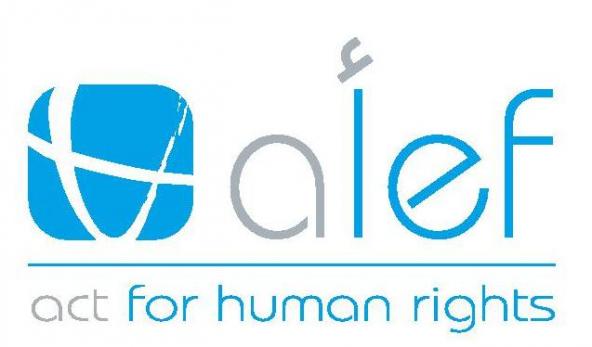
Member(s)
Act for Human Rights (ALEF)
on 30 April 2020
Act for Human Rights previously know as “Association libanaise pour l’éducation et la formation” core mandate is Monitoring and Advocacy. Its main concern are Human Rights issues, thus the organization has been advocating against death penalty. Currently our project activities are the following: Death Penalty Abolition Activities in Lebanon- ALEF – act for human rights […]
2020
Lebanon
Article(s)
US death sentences hit new low in 2009
By Death Penalty Information Center, on 7 January 2010
As legal efforts and economic woes weighed in against the death penalty, fewer Americans were sent to death row in 2009 than any other year since the restoration of capital punishment in the US in 1976.
2010
Mental Illness
United States
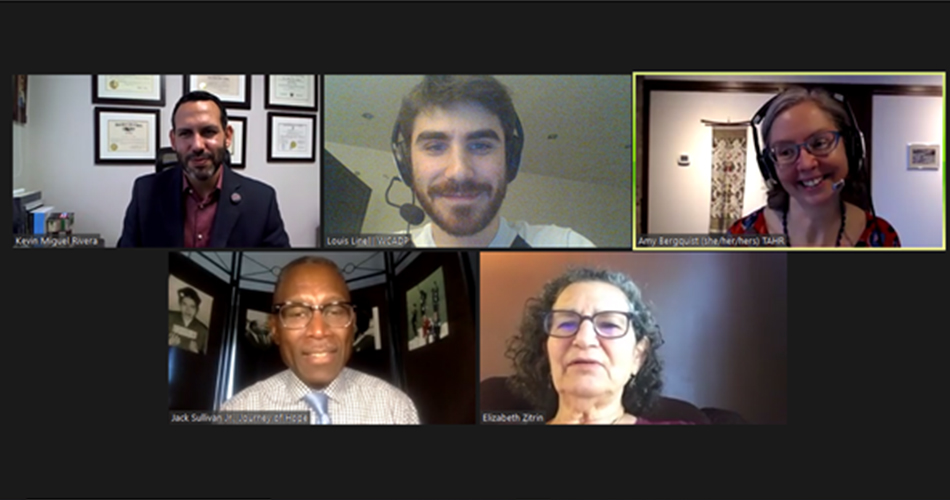
Article(s)
UPR 36th Session Debriefed on Facebook Live
By Louis Linel, on 17 November 2020
As the 36th session of the Universal Periodic Review (UPR) was being held under the auspices of the UN Human Rights Council from 02 to 13 November, the Advocates for Human Rights, a member organization of the World Coalition, facilitated Facebook live debriefings to cover the review of States that have not yet abolished capital […]
2020
Belarus
Jamaica
Liberia
Libya
Malawi
Maldives
United States
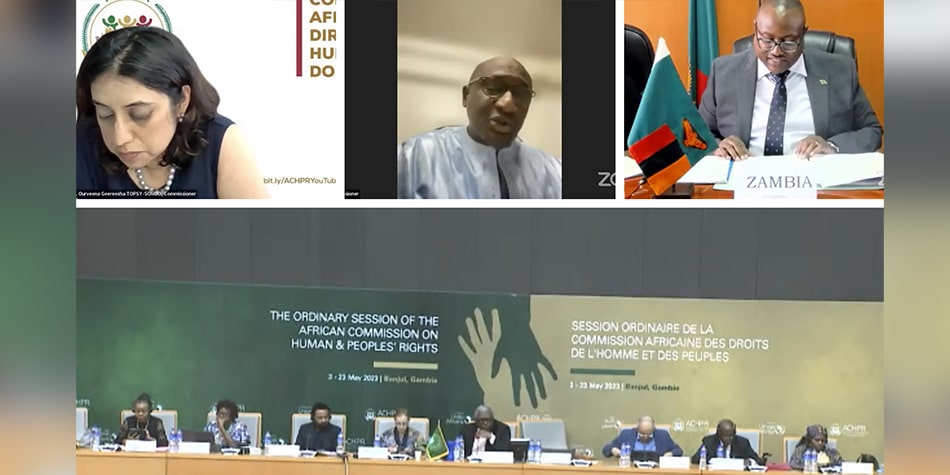
Article(s)
75th Ordinary Session of the African Commission of Human and Peoples’ Rights
By Wendy Adouki, World Coalition Against the Death Penalty, on 15 August 2023
From 3rd to 23rd May 2023, the African Commission on Human and Peoples’ Rights (ACHPR) held its 75th Ordinary Session for the first time in a hybrid format with participants both attending online and in person in Banjul, the Gambia, seat of the ACHPR.
2023
Trend Towards Abolition

Article(s)
Abolition of the death penalty at the United Nations Human Rights Council 51st session
By World coalition against the death penalty, on 24 October 2022
The United Nations Human Rights Council met for its 51st regular session from September 12 to October 7, 2022. If you missed it, here is what happened regarding the abolition of the death penalty!
2022
Trend Towards Abolition
Article(s)
Is the death penalty a cruel, inhuman or degrading punishment under international law?
on 20 March 2009
Special Rapporteur Manfred Nowak raised the issue at the UN’s Human Rights Council, triggering a debate in which World Coalition member organisations had their say.
2009
Cruel, Inhuman and Degrading Treatment and Punishment
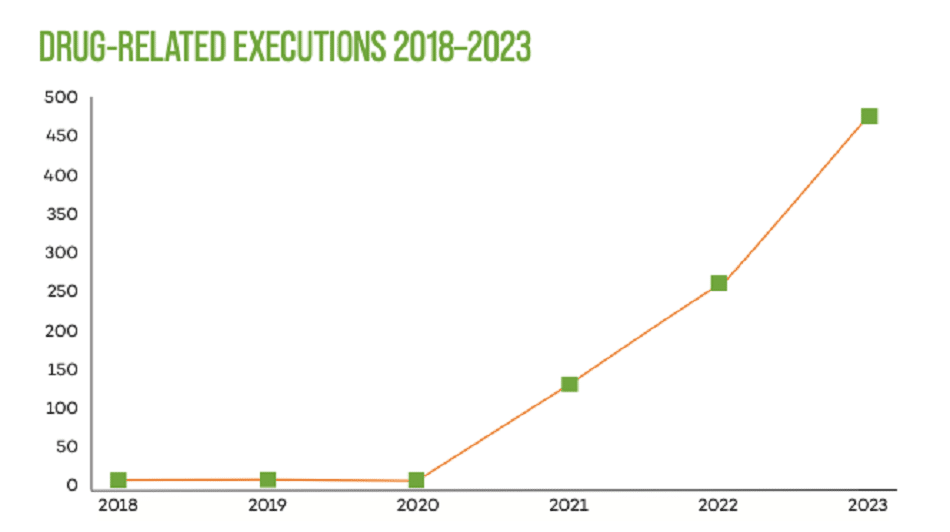
Article(s)
“Frightening” increase of executions in Iran
By World coalition against the death penalty, on 20 June 2024
Iran Human Rights (IHRNGO) reports that at least 243 people, including 10 women, have been executed in 2024, as of 15 June. In 2023, the number of people executed has increased from 582 to 834. At least 471 people were executed for drug-related offenses. This represent a 84% increase compared to 2022 (256).
2024
Drug Offenses
Iran (Islamic Republic of)
Document(s)
Qatar – Human Rights Committee – Death Penalty – January 2022
on 31 January 2022
2022
NGO report
World Coalition
Qatar
More details Download [ pdf - 236 Ko ]
Qatar had been maintaining a de facto moratorium on executions since 2000, but courts continued to sentence people to death. In 2020, however, Qatar executed a Nepali migrant worker by firing squad. Qatar’s death penalty practices are not in compliance with the Covenant. Qatar does not limit the death penalty to the most serious crimes, it is not taking steps toward a de jure moratorium on executions or ratification of the Second Optional Protocol, and it does not ensure that defendants in capital cases have a fair trial. Recent history suggests that a migrant worker may be more likely to be sentenced to death and executed for killing a Qatari national, as opposed to a non-citizen. Migrant workers are particularly vulnerable in the context of the country’s criminal legal system.
- Document type NGO report / World Coalition
- Countries list Qatar
Document(s)
How to Work with Parliamentarians for the Abolition of the Death Penalty
By World Coalition Against the Death Penalty, on 7 October 2021
2021
Working with...
World Coalition
Moratorium
Public Opinion
frMore details Download [ pdf - 18114 Ko ]
This how-to guide, elaborated with Parliamentarians for Global Action with highlights coming from the African continent, is specifically designed for the use of abolitionist civil society groups who want to work with parliamentarians for the abolition of the death penalty.
- Document type Working with... / World Coalition
- Themes list Moratorium / Public Opinion
- Available languages Comment travailler avec les parlementaires pour l'abolition de la peine de mort ?
Document(s)
The Physician in the Execution Chamber: No Such Thing as the Normal Pain of Dying
By Joel Zivot, California Western International Law Journal , on 1 February 2024
2024
Academic Article
United States
More details See the document
Published in October 2023.
For capital punishment to be lawful in the United States of America, it must occur without cruelty, a requirement of the traditional reading of the Eighth Amendment. There has never been a consensus on what form of execution is cruel, although some historic practices are shockingly barbaric to modern sensibilities— I think of the “draw and quarter” technique. The family of the murdered victim may fairly argue that the murderous behavior should be the minimum degree of cruelty meted out. But western countries eschew that standard and seek moderate forms, partly to deter by punishment and partly as a forfeit of the murderer’s life for the victim’s life when execution is allowed in that state. Certainly, there is substantial support for continuation of execution in states that allow it. The judges must be respectful of that, but still, they must respect the 8th amendment. At present, the prevalent method of execution in the United States is “lethal injection” using injectable medicines in very high doses that are repurposed to kill the prisoner. Because it is impossible to ask an executed individual about the cruelty experienced during their own death, the state instead relies on the empathy of witnesses to gauge the cruelty of a prisoner’s execution. Lethal injection was expected to be a bloodless execution and aimed to eliminate the visible appearance of cruelty, sometimes through the use of a paralytic.
- Document type Academic Article
- Countries list United States
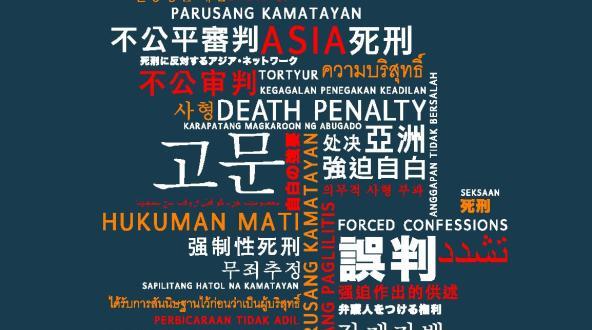
Article(s)
Asia: Stop executions and unfair trials
By ADPAN, on 6 December 2011
A hard-line group of Asian countries are defying the global trend against the death penalty and putting to death thousands of people after unfair trials every year, the Anti-Death Penalty Asia Network (ADPAN) said today in a new report.
2011
Article(s)
3rd World Congress Report: a 400-page strategy
on 22 April 2008
The report of the Paris World Congress, organised by Together Against the Death Penalty with the help of the World Coalition in Paris in 2007, is just out. Its aim is to serve as a “guide to abolitionist strategy”.
2008
Document(s)
Mobilization Kit 2006
By World Coalition against the death penalty , on 10 October 2006
2006
Campaigning
Trend Towards Abolition
frMore details Download [ pdf - 114 Ko ]
The World Coalition was created in Rome on 13 May
2002, following the commitment undertaken by the
organizations who signed the Final Declaration of
the First World Congress against the death penalty
in June 2001 in Strasbourg. It comprises 52 non-
governmental organizations, as well as bar asso-
ciations, trade unions and local communities.
The Coalition aims to reinforce the international
movement to abolish the death penalty, to reduce
the scope of capital punishment and put an end
to executions wherever they take place. To this
end, the Coalition facilitates the creation and devel-
opment of national and regional coalitions against
the death penalty. The Coalition also spearheads
lobbying efforts directed towards states and inter-
national institutions.
- Document type Campaigning
- Themes list Trend Towards Abolition
- Available languages Kit de mobilisation 2006

Article(s)
Adoption of Bill Allowing the Imposition of the Death Penalty for a New Crime.
By Grace Keane O'Connor , on 30 April 2021
Philippine House Bill No. 7814 provides the death penalty for a new crime under the 2002 Comprehensive Dangerous Drugs Act.
2021
Drug Offenses
Philippines
Document(s)
Defending Women and Transgender Persons Facing Extreme Sentences: A Practical Guide
on 14 January 2022
2022
Legal Representation
Legal Representation
Women
frMore details See the document
Written by a team including experts in the fields of capital defense, gender rights, gender-sensitive mitigation and the rights of transgender persons, the guide includes sections on gender-based violence, women’s mental health, prison conditions, discrimination in the legal system, working with the media, and how to build a gender-sensitive team. It also includes a step-by-step gender-sensitive interview protocol that builds on resources developed by the anti-violence community and is tailored to the needs of defense teams.
- Document type Legal Representation
- Themes list Legal Representation / Women
- Available languages Défendre les femmes et les personnes transgenres confrontées à des peines extrêmes
Document(s)
Worked to Death: A study on migrant workers and capital punishment
By Migrant Care and Reprieve, on 24 November 2021
2021
NGO report
Fair Trial
Indonesia
Legal Representation
Malaysia
Nigeria
Pakistan
Saudi Arabia
Women
More details See the document
Foreign nationals, and within this group migrant workers, are a population that disproportionately faces the death penalty around the world. The data and statistics gathered by Reprieve and Migrant CARE for this report show that migrant workers as a sub-set of the foreign national population are at grave risk of human rights violations related to the death penalty, including arbitrary deprivation of the right to life in the context of unlawful death sentences and executions.
This report focuses on: states that receive migrant workers (‘receiving states’), in particular the states that make up the Association of South East Asian Nations or ASEAN (‘South East Asian states’) and the Gulf Cooperation Council (‘Gulf states’), and on states from which migrant workers travel to work (‘sending states’).
- Document type NGO report
- Countries list Indonesia / Malaysia / Nigeria / Pakistan / Saudi Arabia
- Themes list Fair Trial / Legal Representation / Women
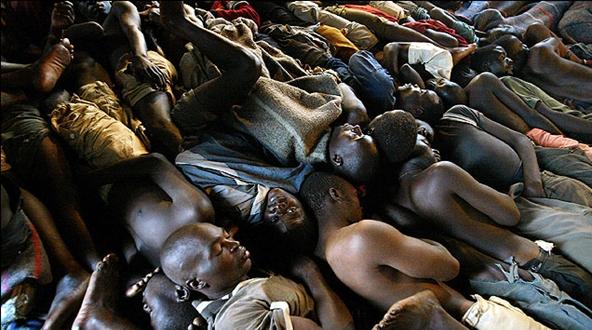
Article(s)
Asia still top executioner but more divided than ever: Hands Off Cain Report
By Aurélie Plaçais, on 11 August 2011
Hands Off Cain’s 2011 Report contains the most important facts regarding the practice of the death penalty in 2010 and the first six months of 2011.
2011
China
Democratic People's Republic of Korea
Drug Offenses
India
Iran (Islamic Republic of)
Mongolia
Moratorium
Myanmar
Viet Nam
Document(s)
Palestine – Committee Against Torture – Death Penalty – June 2022
on 21 July 2022
2022
NGO report
World Coalition
State of Palestine
More details Download [ pdf - 1747 Ko ]
The State of Palestine on 1 April 2014 ratified the Convention against Torture and Other Cruel, Inhuman or Degrading Treatment or Punishment. On 28 December 2017, the State of Palestine signed the Optional Protocol to the Convention against Torture and Other Cruel, Inhuman or Degrading Treatment or Punishment. On 18 March 2019, the State of Palestine also ratified the Second Optional Protocol to the International Covenant on Civil and Political Rights (ICCPR), which aims to abolish the death penalty. The State of Palestine has not yet abolished the death penalty. Indeed-as described herein-the 14 June 2007 split in power between the Palestinian Authority in Ramallah in the West Bank under President Abbas, and the Hamas movement in Gaza, has been followed by many documented executions in Gaza without the requisite signature of President Abbas, and Gazan military courts conduct trials of civilians, where they can be sentenced to death.
This report considers the prevalence of torture and other issues ancillary to the death penalty itself: confessions under torture or degrading treatment, due process, access to legal counsel, death-row conditions, and methods of execution.
- Document type NGO report / World Coalition
- Countries list State of Palestine
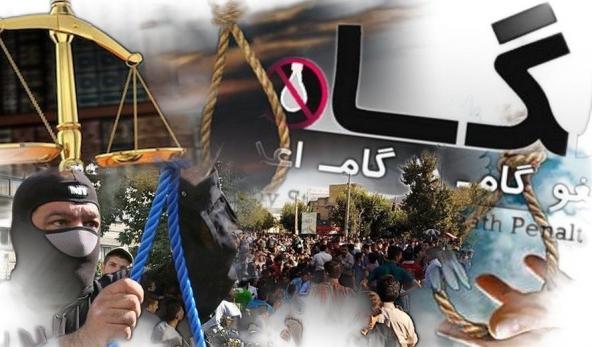
Article(s)
Ways to Restrict the Use of the Death Penalty in Iran
By Iran Human Rights, on 8 April 2019
Iran Human Rights (IHR); March 27, 2019: A part of the 11th Annual Report on the Death Penalty in Iran, by IHR, deals with the ways to restrict the use of the death penalty in Iran.
2019
Iran (Islamic Republic of)
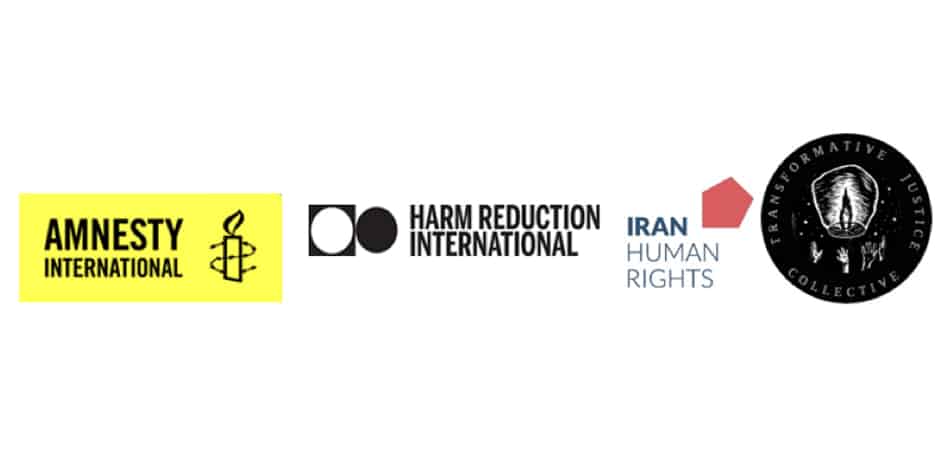
Article(s)
World Drugs Day: UNODC must act to stop the use of death penalty for drug-related offences and urge states to end executions
By Amnesty International, Harm Reduction International, Iran Human Rights, Transformative Justice Collective, on 27 June 2023
On 26 June, the UN Office on Drugs and Crime (UNODC) is marking World Drugs Day with the theme “People first: stop stigma and discrimination, strengthen prevention”, and launched another edition of the World Drug Report. Sadly, as has been the case over the years, UNODC has failed to raise concerns over the continued use […]
2023
Drug Offenses
Article(s)
Japan executions “a step backward for Asia”
on 30 July 2010
Activists in Japan and elsewhere have criticised Justice Minister Keiko Chiba for ordering two men to be hanged in Tokyo on July 28 despite her earlier abolitionist statements.
2010
Japan
Moratorium
Public Opinion
Taiwan
Article(s)
US murder victims’ families advocate abolition in Asia
on 14 July 2010
World Coalition member organisation Murder Victims’ Families for Human Rights held public events and meetings with victims and leaders during a recent tour of South Korea, Japan and Taiwan.
2010
Murder Victims' Families
Republic of Korea
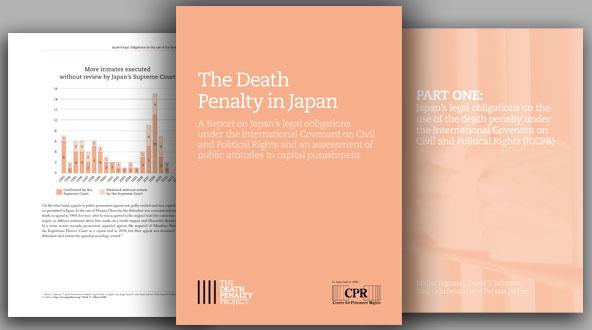
Article(s)
Japan in breach of international standards, opinion wavering – study
By Thomas Hubert, on 14 March 2013
A report published by the Death Penalty Project and the Center for Prisoners’ Rights shows that Japanese law and practice on capital punishment violate international treaties, and questions the high level of public support for the death penalty reported by the authorities.
2013
Japan
Public Opinion
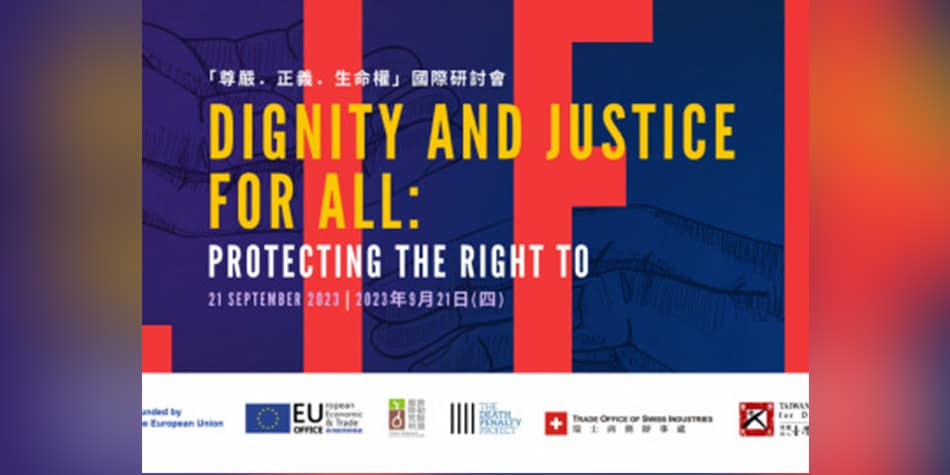
Article(s)
International Symposium on the Right to Life in Taiwan
By Taiwan Alliance to End the Death Penalty (TAEDP), on 12 January 2024
The Taiwan Alliance to End the Death Penalty (TAEDP) held a series of events including an international seminar, prison visit, and meetings that took place from 19-22 September 2023 to celebrate its 20th anniversary.
2024
Cruel, Inhuman and Degrading Treatment and Punishment
Death Row Conditions
India
Taiwan
Article(s)
India: a “lethal lottery”
on 15 May 2008
A study of the rulings by New Delhi’s Supreme Court for more than 50 years concluded that “the administration of the death penalty in India is manifestly flawed”.
2008
Fair Trial
India
Innocence
Legal Representation
Terrorism

Article(s)
Plans to carry out arbitrary executions in Myanmar must halt immediately
By World Coalition Against the Death Penalty , on 23 June 2022
The undersigned organizations are gravely concerned at the recent announcement by the military authorities of Myanmar that the death sentences imposed on four people after grossly unfair proceedings have been approved for implementation.
2022
Cruel, Inhuman and Degrading Treatment and Punishment
Fair Trial
Legal Representation
Myanmar

Article(s)
Abolition of the death penalty at the United Nations Human Rights Council 49th session
By Aurelie Placais, staff, on 3 May 2022
The 49th session of the UN Human Rights Council took place from 28 February to 1 April 2022. If you missed it, here’s what happened in relation to the abolition of the death penalty!
2022
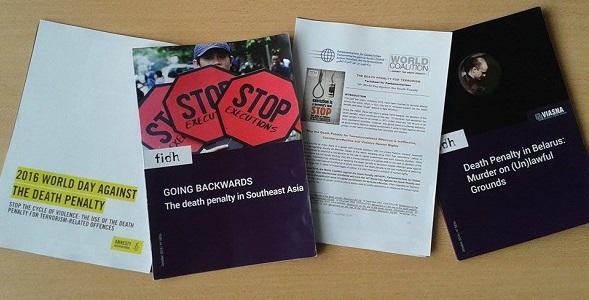
Article(s)
Eager to learn more about the death penalty? Abolitionist civil society around the world answered your call!
By Elise Guillot, on 8 November 2016
10 October saw the release of several publications and tools to raise awareness on the death penalty in all regions of the world. Take a look!
2016
Terrorism
Document(s)
Children, Youth and the Death Penalty
By International Commission against the Death Penalty, on 23 June 2023
2023
NGO report
Juveniles
More details See the document
ICDP announces the launch of its latest report: Children, Youth and the Death Penalty. The issue of how the death penalty affects children and youth is often ignored by policy makers. This report aims to change that by putting the protection of children’s rights at the center of the debate on the death penalty.
The report builds on the panel discussion titled “Youth and the Death Penalty,” which was organized by the International Commission against the Death Penalty (ICDP) and the Government of Australia. The discussion was held on 29 June 2022, at the sidelines of the 50th session of the UN Human Rights Council, in Geneva.
- Document type NGO report
- Themes list Juveniles
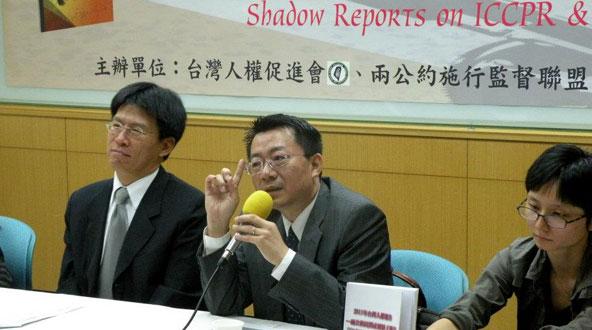
Article(s)
Death penalty at the heart of human rights review
By Thomas Hubert, on 5 February 2013
The Taiwanese authorities have been conducting a voluntary assessment of the human rights situation in the country, culminating in the visit of a panel of experts in late February. The World Coalition is taking part in the process.
2013
Cruel, Inhuman and Degrading Treatment and Punishment
Moratorium
Taiwan
Taiwan
Document(s)
Capital punishment and implementation of the safeguards guaranteeing protection of the rights of those facing the death penalty
By United Nations , on 26 May 2021
2021
United Nations report
aresfrruzh-hantMore details See the document
Summary
In its resolution 1745 (LIV) of 16 May 1973, the Economic and Social Council invited the Secretary-General to submit to it, at five-year intervals starting from 1975, periodic updated and analytical reports on capital punishment. The Council, in its resolution 1995/57 of 28 July 1995, recommended that the quinquennial reports of the Secretary-General continue to cover also the implementation of the safeguards guaranteeing protection of the rights of those facing the death penalty.
In the same resolution, the Council requested the Secretary-General, in preparing the quinquennial report, to draw on all available data, including current criminological research. The present report, which is the tenth quinquennial report, contains a review of the use of and trends in capital punishment, including the implementa tion of the safeguards during the period 2014–2018.
In accordance with resolutions 1745 (LIV) and 1990/51, of 24 July 1990, of the Economic and Social Council, as well as its decision 2005/247 of 22 July 2005, the present report is submitted to the Council at its substantive session of 2020, and will also be before the Commission on Crime Prevention and Criminal Justice at its twenty-ninth session and the Human Rights Council at its forty-fourth regular session.
The report on the 2014–2018 quinquennium confirms the trend documented in previous reports towards abolition and restriction of the use of capital punishment in most countries. The number of States that have abolished the death penalty in law and in practice continued to grow. This is reflected in the increased number of States bound by treaty obligations not to implement the death penalty. The quinquennium also witnessed some years of dramatic increases in the number of executions, which were carried out by a small number of States. The situation stabilized at the end of the survey period, and the number of recorded executions in the final year, 2018, was the lowest in many years. The safeguards guaranteeing the protection of the rights of those facing the death penalty apply to States that retain capital punishment. It is of concern, however, that the death penalty continued to be imposed on persons below 18 years of age at the time of commission of the offence, and that death sentences were imposed in cases where the “most serious crimes” standard was not met and in cases of trials that did not comply with international standards.
- Document type United Nations report
- Available languages عقوبة اإلعدام وتنفيذ الضمانات التي تكفل حماية حقوق من يواجهون عقوبة اإلعدامLa pena capital y la aplicación de las salvaguardias para garantizar la protección de los derechos de las personas condenadas a la pena de muertePeine capitale et application des garanties pour la protection des droits des personnes passibles de la peine de mortСмертная казнь и применение мер, гарантирующих защиту прав тех, кому грозит смертная казнь死刑和保护死刑犯权利的保障措施的执行情况
Document(s)
Cuba – Committee Against Torture – Death Penalty – March 2022
on 21 March 2022
2022
NGO report
World Coalition
Cruel, Inhuman and Degrading Treatment and Punishment
Cuba
More details Download [ pdf - 250 Ko ]
Cuba has maintained a de facto moratorium on the imposition of the death penalty since its last reported execution in 2003. In 2010, Cuba’s Supreme Court commuted the death sentence of Cuba’s last remaining death row inmate. As of the date of this report, there is no record of an individual currently sentenced to death. Although a de facto moratorium is in place, Cuba has not committed to a de jure abolition of the death penalty, citing national security concerns.
- Document type NGO report / World Coalition
- Countries list Cuba
- Themes list Cruel, Inhuman and Degrading Treatment and Punishment
Document(s)
The Road to Abolition?: The Future of Capital Punishment in the United States
By Charles J. Ogletree and Austin Sarat, on 24 August 2023
2023
Book
United States
More details See the document
At the start of the twenty-first century, America is in the midst of a profound national reconsideration of the death penalty. There has been a dramatic decline in the number of people being sentenced to death as well as executed, exonerations have become common, and the number of states abolishing the death penalty is on the rise. The essays featured in The Road to Abolition? track this shift in attitudes toward capital punishment, and consider whether or not the death penalty will ever be abolished in America.The interdisciplinary group of experts gathered by Charles J. Ogletree Jr., and Austin Sarat ask and attempt to answer the hard questions that need to be addressed if the death penalty is to be abolished. Will the death penalty end only to be replaced with life in prison without parole? Will life without the possibility of parole become, in essence, the new death penalty? For abolitionists, might that be a pyrrhic victory? The contributors discuss how the death penalty might be abolished, with particular emphasis on the current debate over lethal injection as a case study on why and how the elimination of certain forms of execution might provide a model for the larger abolition of the death penalty.
- Document type Book
- Countries list United States
Document(s)
How to Insert Gender issues in Abolitionist Advocacy?
By World Coalition against the Death Penalty, on 1 August 2023
2023
Lobbying
Gender
frMore details Download [ pdf - 710 Ko ]
This tool was developed by the World Coalition Against the Death Penalty (World Coalition) in partnership with the Advocates for Human Rights (TAHR), after noting the limited integration of gender issues into the abolitionist advocacy of the World Coalition’s member organizations. This tool has also been edited and enrichened by the World Coalition’s Gender Working Group.
As part of the “Leave No Woman Behind on Death Row” project, this tool aims to assist World Coalition members and partners in implementing gender-sensitive abolitionist advocacy.
In this document, intended to be a practical tool, guidance is provided on how to incorporate gender-specific recommendations into abolitionist advocacy with human rights bodies. This tool focuses recommendations made by civil society organizations (CSOs) to international and regional human rights bodies, intended to encourage national authorities to act in a certain way. Human rights mechanisms and bodies serve as crucial actors in legitimizing and supporting CSOs work on the ground. A recommendation made by a CSO can, in turn, be accepted by a human rights special mechanism and be transformed into an official recommendation to the State. From there, CSOs can continue to use this official recommendation in their national advocacy to strengthen their claim and position, fulfilling a virtuous circle in advocacy work.
In this document, the recommendations made are done pending full abolition of the death penalty. They are seen as transitional steps towards full abolition of the death penalty in law and in practice.
This tool is divided into two sections. The first part focuses on how to increase visibility of the discrimination faced by women in the judicial process leading to the death penalty. The second part focuses on the discrimination faced by LGBTQIA+ people during the same judicial process. In both sections, definitions are provided as well as background information in order to understand the issues at stake in each of the themes.
- Document type Lobbying
- Themes list Gender
- Available languages Comment insérer les questions de genre dans le plaidoyer abolitionniste ?
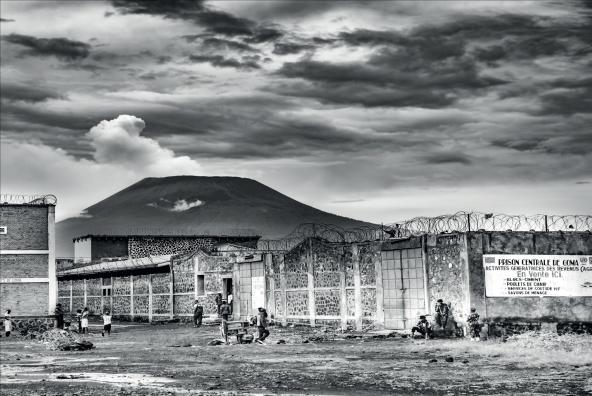
Article(s)
Death Sentences in the Democratic Republic of the Congo More Numerous than Previously Thought
By Bronwyn Dudley, on 12 March 2020
ECPM and CPJ published a report in December 2019 following a fact-finding mission in the Democratic Republic of the Congo (DRC) that took place earlier in the year. The results of the mission were astonishing – while the number of individuals sentenced to death was previously estimated to be 300 at most, the mission uncovered that there are at least 510 waiting execution. Liévin Ngondji, co-author of the report and President of CPJ, was in Paris in February 2020 to comment. Photo on the cover of the Report : 22 Oct 2015. Prison Centrale Goma, Democratic Republic of Congo copyright Ben Houdjik/ Shutterstock
2020
Cruel, Inhuman and Degrading Treatment and Punishment
Democratic Republic of the Congo
Fair Trial
Document(s)
2021 OHCHR Report on Deterrence: High-level panel discussion on the question of the death penalty
By Office of the High Commissioner for Human Rights (OHCHR), on 14 January 2022
2022
United Nations report
Public Opinion
aresfrruzh-hantMore details See the document
The present report is submitted pursuant to Human Rights Council resolutions 26/2 and 42/24. It provides a summary of the high-level panel discussion on the question of the death penalty held on 23 February 2021 at the forty-sixth session of the Council. The panel discussion addressed the human rights violations related to the use of the death penalty, in particular with respect to whether the use of the death penalty has a deterrent effect on crime rates.
- Document type United Nations report
- Themes list Public Opinion
- Available languages حلقة نقاش رف عة المستوى بشأن مسألة عقوبة الإعدامInforme de la OACDH 2021 sobre el efecto disuasorio : Mesa redonda de alto nivel sobre la cuestión de la pena de muerteRapport HCDH 2021 sur l'effet dissuasif : Réunion-débat de haut niveau sur la question de la peine de mortОбсуждение в рамках дискуссионной группы высокого уровня вопроса о смертной казни,способствует ли ее применение сдерживанию преступности2021年联合国威慑效应报告 - 关于死刑问题的高级别专题小组讨论会
Document(s)
Annual Report on the Death Penalty in Iran 2022
By Iran Human Rights & ECPM, on 13 April 2023
2023
NGO report
Iran (Islamic Republic of)
frMore details See the document
The 15th Annual Report on the Death Penalty in Iran, by Iran Human Rights and ECPM reveals the highest annual number of executions since 2015. At least 582 people were executed, an increase of 75% compared to 2021. In 2022, Iran’s authorities demonstrated how crucial the death penalty is to instil societal fear in order to hold onto power.
- Document type NGO report
- Countries list Iran (Islamic Republic of)
- Available languages Rapport annuel sur la peine de mort en Iran 2022
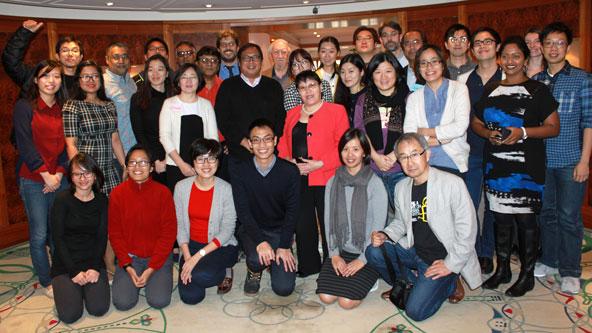
Article(s)
ADPAN network strengthens abolitionists across Asia
By Aurélie Plaçais (in Taipei, Taiwan), on 9 December 2014
The Anti-Death Penalty Asia Network, a coalition hosted by Amnesty International in London since 2006, has become an independent organisation registered in Malaysia and held its first AGM in Taipei, Taiwan on 4-5 December.
2014
China
Japan
Malaysia
Mongolia
Public Opinion
Republic of Korea
Taiwan
Taiwan
Document(s)
Report 2008. Asia: Its time to end executions
By World Coalition Against the Death Penalty, on 1 January 2008
2008
Campaigning
frMore details Download [ pdf - 771 Ko ]
The 2008 World Day report presents information on the death penalty in the world with particular attention to India, South Korea, Taiwan, Japan, Pakistan and Vietnam. The events that took place around the world in 2008 for the world day are noted in this report also.
- Document type Campaigning
- Themes list Networks,
- Available languages Rapport Journée Mondial de la Coalition mondiale : Asie: Il est temps d'arreter les exécutions
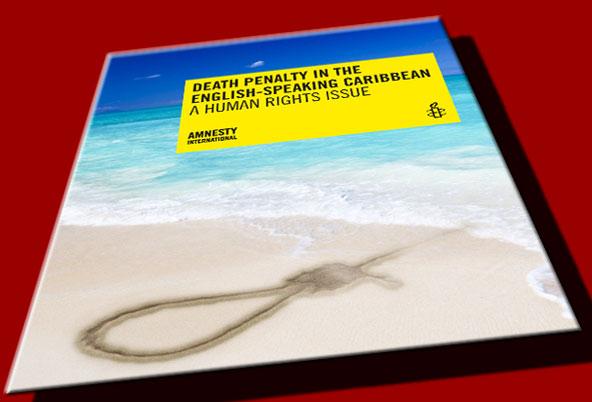
Article(s)
Call to end flawed Caribbean death penalty
By Thomas Hubert, on 10 December 2012
An appeal signed by local organizations and a new report by Amnesty International denounce multiple human rights violations in the use of capital punishment in the region and ask governments to “remove the death penalty once and for all from the law books”.
2012
Antigua and Barbuda
Bahamas
Barbados
Belize
Dominica
Fair Trial
Grenada
Guyana
Intellectual Disability
Jamaica
Mental Illness
Saint Kitts and Nevis
Saint Lucia
Saint Vincent and the Grenadines
Trinidad and Tobago
Document(s)
Gender and Death Penalty Glossary
By World Coalition against the Death Penalty, on 1 August 2023
2023
World Coalition
Gender
frMore details Download [ pdf - 829 Ko ]
As part of the integration of a gender and intersectional approach into its strategy, the World Coalition Against the Death Penalty (World Coalition) decided to develop a glossary to identify and define the key terms of which the abolitionist movement should be aware to consider gender and other axes of intersectional discrimination at work in the capital punishment process, and more broadly to mainstream gender into their abolitionist work. This glossary was developed based on existing glossaries of World Coalition members on closely related topics, existing international definitions and standards established by international human rightsmechanisms as well as based on definitions written by international organizations specializing inwomen’s rights and LGBTQIA+ people’s rights.This glossary aims to support the abolitionist movement in recognizing the gender and intersectional biases at work in the judicial process leading to the death penalty and to contribute to the developmentof a common language around these issues, a process initiated a few years ago by members of theWorld Coalition Against such as the Cornell Center on the Death Penalty Worldwide. Moreover, this glossary also aims to promote the integration of a gender approach into the internal workings o fabolitionist organizations.
- Document type World Coalition
- Themes list Gender
- Available languages Glossaire Genre et Peine de mort
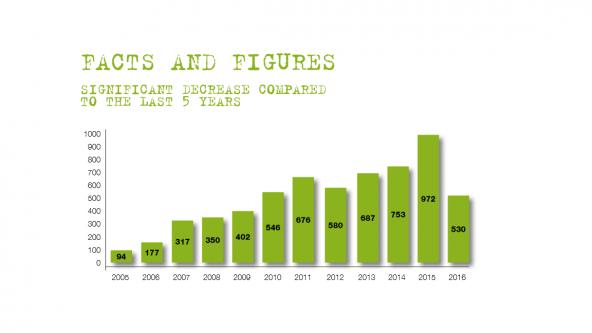
Article(s)
Iran: 2016 a deadly year despite a slight decrease in the executions
By Iran Human Rights, on 6 April 2017
The 9th annual report by Iran Human Rights (IHR)and ECPM (Ensemble contre la peine de mort) on the death penalty in Iran shows that in 2016 at least 530 people were executed in the Islamic Republic of Iran. Although this number is significantly lower than the annual execution numbers from the past five years, Iran remained the country with the highest number of executions per capita.
2017
Iran (Islamic Republic of)
Document(s)
Annual Statistics Report 2022
By Project 39A, on 22 February 2023
2023
NGO report
India
More details See the document
This is the seventh edition of the Death Penalty in India: Annual Statistics Report published by Project 39A at National Law University, Delhi. 2022 represents a significant shift in death penalty adjudication, with the Supreme Court recognising the need to reconsider the capital sentencing framework for the first time since it was laid down in Bachan Singh v. State of Punjab in 1980. In a momentous order, the Supreme Court noted the gaps in the death penalty sentencing framework and has sought to address these concerns through a Constitution Bench towards establishing the components of a real, meaningful and effective capital sentencing hearing. In another decision, the Court laid down guidelines for the collection of mitigating material by trial courts. However, in the same year that the Supreme Court cast grave doubts on the death penalty sentencing framework and its implementation by trial courts, it is of concern that 165 death sentences were imposed by Sessions Courts, the highest in a single year since 2000.
- Document type NGO report
- Countries list India
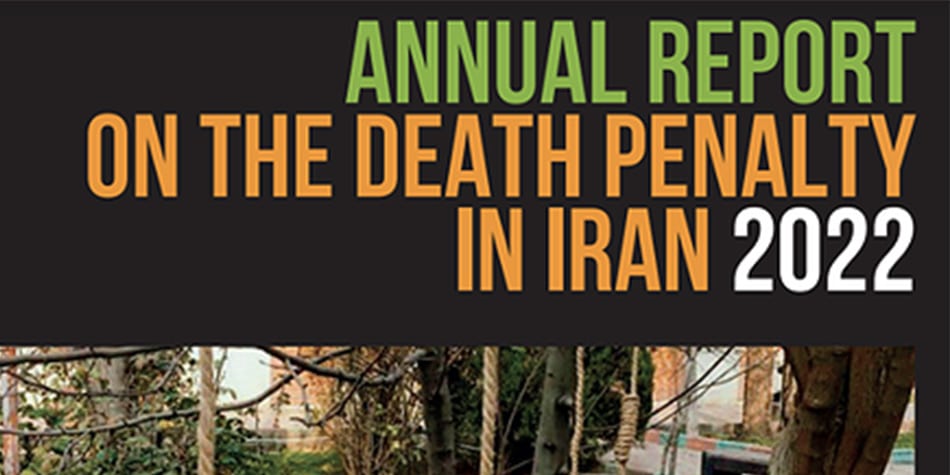
Article(s)
Annual Report on the Death Penalty in Iran: Alarming Increase in Executions
By World coalition agains the death penalty, on 18 September 2023
As of 12 September 2023, Iran Human Rights reported that at least 499 people, including 13 women were executed in 2023, which represents an alarming rise compared to the same period in 2022.
2023
Iran (Islamic Republic of)
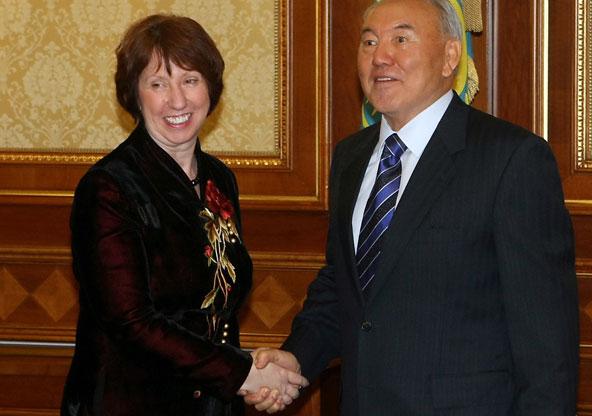
Article(s)
Kazakh criminal law reform could add capital crimes
By Thomas Hubert, on 15 February 2013
As Kazakhstan’s authorities prepare to introduce a new penal code, World Coalition members are warning against attempts to broaden the offences punishable by death.
2013
Kazakhstan
Moratorium
Public Opinion
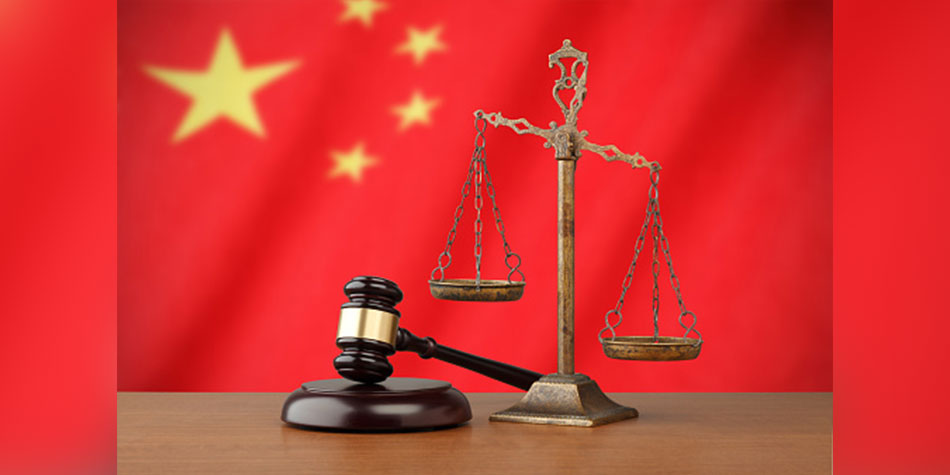
Article(s)
The Status Quo of China’s Death Penalty and the Civil Society Abolitionist Movement
By China Against the Death Penalty, on 15 February 2022
Translation of an article on the death penalty in China for the Beijing Olympics 2022, initially published by Taiwan Alliance to End the Death Penalty in October 2021 for World Day.
2022
China
Legal Representation
Article(s)
Teng Biao: Olympics an opportunity to put pressure on the Chinese authorities”
on 13 February 2008
Teng Biao is one of the rare activists who call for the immediate abolition of the death penalty from within China. In the past weeks, the police confiscated his passport and he received threats.
2008
China
Innocence
Public Opinion
Article(s)
High-Level Remote Panel on the Moratorium Resolution
By Louis Linel, on 6 November 2020
On 5 November, a webinar gathering high-level panelists was held by Ensemble contre la peine de mort / Together Against the Death Penalty (ECPM) as one of their initiatives for the moratorium campaign. Usually organized in New York, USA on the margins of the United Nations General Assembly (UNGA), the event had to be facilitated […]
2020
Algeria
Belgium
Democratic Republic of the Congo
France
Italy
Moratorium
Morocco
Switzerland

Article(s)
Joint Open Letter to the Minister of Justice of Malawi on the abolition of the death penalty
By World Coalition Against the Death Penalty, on 26 July 2024
Dear Minister of Justice, Honorable Titus Mvalo Ahead of this joint letter, the World Coalition Against the Death Penalty would like to express its deepest condolences to the Government and people of Malawi for the passing of Vice President Mr. Saulos Chilima on 11 June 2024.
2024
Malawi
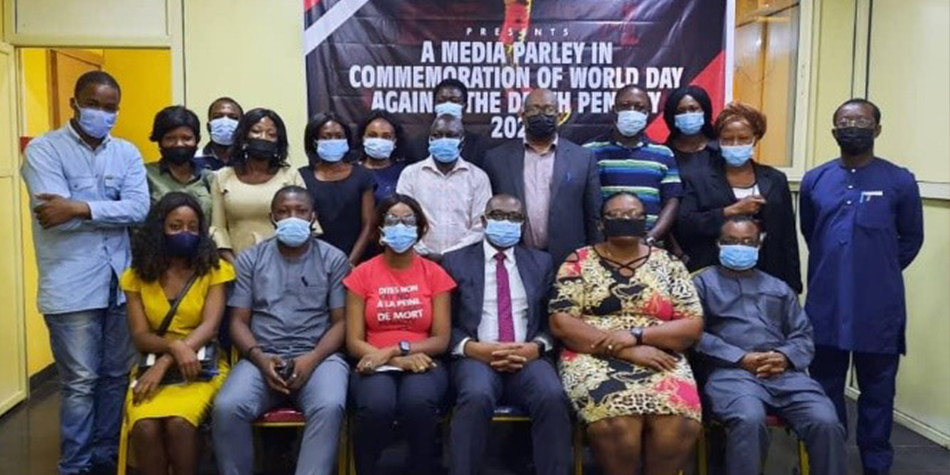
Article(s)
Women Sentenced to Death Showcased on the 19th World Day Against the Death Penalty
By Elise Garel, on 3 December 2021
With the theme “Women sentenced death: an invisible reality”, the 19th World Day Against the Death Penalty aimed to highlight the issues faced by women who are sentenced to death, executed, pardoned or exonerated around the world.
2021
Cameroon
Indonesia
Iran (Islamic Republic of)
Morocco
Nigeria
Pakistan
Sierra Leone
United States
Women

Article(s)
Abolition of the death penalty at the United Nations Human Rights Council 52nd session
By World coalition against the death penalty, on 22 May 2023
The United Nations Human Rights Council met for its 52nd Regular Session from February 27 to April 4, 2023. If you missed it, here is what happened regarding the abolition of the death penalty!
2023
Trend Towards Abolition

Article(s)
Middle East and North Africa: Abolitionist civil societies in full swing despite a difficult context
By Aurelie Placais, World Coalition Against the Death Penalty, on 15 February 2022
On the occasion of the publication of the Human Rights Watch World Report 2022, the World Coalition looks back at recent developments and civil society mobilization against the death penalty in the Arab world.
2022
Bahrain
Egypt
Fair Trial
Iraq
Moratorium
Morocco
Saudi Arabia
State of Palestine
Terrorism
Tunisia
Document(s)
2021 World Day Report
on 10 June 2022
2022
World Coalition
Women
frMore details Download [ pdf - 4154 Ko ]
On 10 October 2021, the World Coalition and abolitionists around the world celebrated the 19th World Day Against the Death Penalty (‘World Day’). Every year on World Day, the World Coalition highlights one problematic aspect of the Death Penalty. In 2021, the World Day explored the theme “Women sentenced to death, an invisible reality” to raise awareness on how the treatment of gender and gender-based inequalities create particularly precarious conditions for women sentenced to capital punishment. This report presents the activities organised for the 19th World Day and the media coverage it received.
- Document type World Coalition
- Themes list Women
- Available languages Rapport journée mondiale 2021
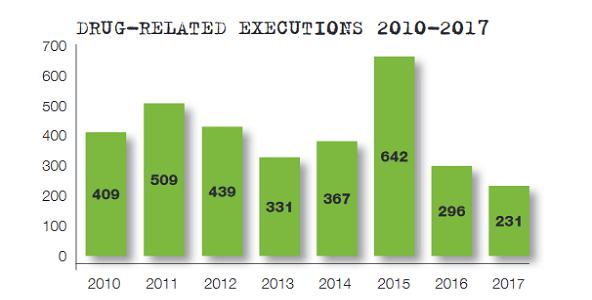
Article(s)
Iran Execution Trends Six Months After the New Anti-Narcotics Law
By Iran Human Rights (IHR), on 29 May 2018
On Monday, May 10, 2018, Iran Human Rights (IHR) reported the execution of Kiomars Nasouhi, a prisoner sentenced to death for drug offenses. This execution is the first drug-related execution registered by IHR since the latest amendment to the Anti-Narcotics Law was enforced on November 14, 2017.
2018
Iran (Islamic Republic of)
Document(s)
The death penalty and the prohibition of torture and other cruel, inhuman or degrading treatment or punishment
on 21 August 2021
2021
NGO report
World Coalition
Cruel, Inhuman and Degrading Treatment and Punishment
frMore details See the document
The signatory organizations are convinced that the death penalty is incompatible with the prohibition of torture and cruel, inhuman or degrading treatment or punishment, which is a peremptory norm of international law (jus cogens) and should thus be abolished. The death penalty is only tolerated by international law and standards to the extent that it may only be imposed for the most serious crimes and applied in a way that causes the least possible suffering. However, the signatory organizations believe that from the sentencing to the execution, the death penalty inevitably causes physical harm and psychological suffering amounting to torture or ill-treatments.
The present position paper documents the extent to which international and regional organisation have already recognised a violation of the absolution prohibitionof torture in the application and imposition of the death penalty.
- Document type NGO report / World Coalition
- Themes list Cruel, Inhuman and Degrading Treatment and Punishment
- Available languages La peine de mort et l'interdiction de la torture et des peines ou traitements cruels, inhumains ou dégradants
Document(s)
Texas Death Penalty Developments in 2022: The Year in Review
By Texas Coalition to Abolish the Death Penalty, on 16 December 2022
2022
NGO report
United States
More details See the document
Use of the death penalty in Texas remained near historic low levels in 2022, with juries sentencing two people to death and the State executing five people. Three other scheduled executions were stayed by the Texas Court of Criminal Appeals (CCA). Overall, the eight execution dates set for 2022 were the fewest in Texas since 1996.
Despite their low number, the executions set and carried out in 2022 raise troubling issues about the fairness and utility of the death penalty. Four of the men put to death, including 78-year-old Carl Wayne Buntion, suffered from physical or mental impairments or histories of childhood trauma, while two maintained their innocence of the crimes for which they were convicted.
- Document type NGO report
- Countries list United States
Document(s)
Report No. 211/20. Case 13.570. Report on admissibility and mertis. Lezmond C. Mitchell. United States of America
By Inter-american Commission on Human Rights, on 24 August 2020
2020
Regional body report
esMore details See the document
- Document type Regional body report
- Available languages Informe No. 211/20. Caso 13.750. Informe sobre admisibilidad y fondo. Lezmond C. Mitchell. Estados Unidos de America
Document(s)
MOBILIZATION KIT World Day Against the Death Penalty 2024 – 2025 Security and the death penalty
By World coalition against the death penalty, on 12 June 2024
2024
Campaigning
World Coalition
frMore details Download [ pdf - 2534 Ko ]
- Document type Campaigning / World Coalition
- Available languages KIT DE MOBILISATION Journée mondiale contre la peine de mort 2024 - 2025 Sécurité et peine de mort
Document(s)
2022 World Day Report
By World coalition against the death penalty, on 12 June 2023
2023
Campaigning
World Coalition
frMore details Download [ pdf - 1557 Ko ]
On 10 October 2022, the World Coalition and abolitionists around the world celebrated the 20th World Day Against the Death Penalty (‘World Day’). Every year on World Day, the World Coalition highlights one problematic aspect of the Death Penalty.
- Document type Campaigning / World Coalition
- Available languages Rapport journée mondiale 2022
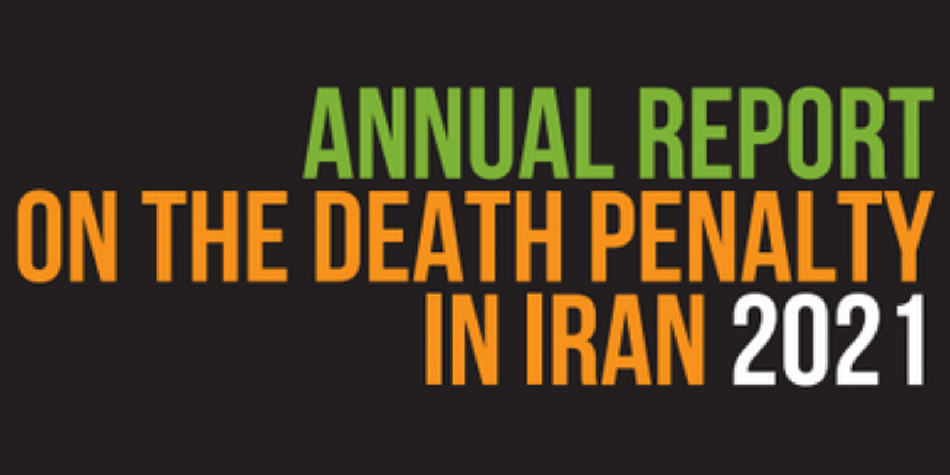
Article(s)
Death Penalty in Iran: Sharp Increase in Executions
By Anissa Aguedal, on 10 June 2022
An alarming situation On 28 April 2022, Iran Human Rights (IHR) and Ensemble contre la peine de mort (ECPM) released their 14th Annual Report on the Death Penalty in Iran, revealing an increase in the number of executions in 2021. At least 333 people were executed and 83,5% of these executions were not announced by […]
2022
Iran (Islamic Republic of)
Document(s)
Women and The Death Penalty in Kenya: Essays on the Gendered Perspective of the Death Penalty
on 2 February 2024
2024
NGO report
Death Row Conditions
Fair Trial
Gender
Kenya
Women
More details See the document
This publication seeks to make visible the gender and intersectional discrimination faced by women in the judicial process leading to the death penalty. Through the various articlesin this publication, the authors bring to light the reality of women facing the death penalty through a different lens.
The first author, Shekinah Bright Kiting’a, in making a compelling case for abolition of the death penalty, explores how the death penalty uniquely affects women in the context of motherhood. Further, she highlights the rights and well-being of the children affected by their mothers’ death sentences, revealing flaws in our legal and ethical systems. With the overall aim of advocating for its abolition due to its significant impact on both parenthood and children’s rights, her article seeks to push for reforms that honour motherhood and prioritize children’s well-being in these difficult circumstances.
Kenaya Komba dissects gender disparity in the judicial system by exploring the intersection of domestic violence and the death penalty. In making a case for a restorative approach to justice, her article analyses the impact of capital punishment on victims of domestic violence and the systemic injustice and biases they continue to grapple with. Her elaborate analysis of the Constitution of Kenya, 2010 and the Protection Against Domestic Violence Act, 2016, highlights the urgent need for reform in the legal system.
While Analyzing the role the media plays in shaping perceptions of women on death row, Patricia Chepkirui evaluates the implications of positive and negative media portrayals of such women by highlighting the ethical responsibilities of media in the coverage of women on death row cases. The article ultimately underscores the significance of responsiblemedia coverage in ensuring that media exposure of cases of women on death row is fair,balanced, and respectful of their rights and dignity.
Alex Tamei delves into the intricacies of abuse, gender-based violence, and trauma as mitigating factors in death penalty sentencing for women. His article comparatively analyses two Kenyan cases of murder in retaliation to intimate partner violence, seeking to shed light on the plight of victims of gender-based violence. The article effortlessly brings out the nexus between the death penalty and intimate partner violence and makessolid recommendations for change.
The fifth author, Patience Chepchirchir, delves into the nexus between psychological abuse and provocation. Through her article, she brings out the scope of psychological abuse while focusing on the linkage between emotional abuse and provocation and how the same can be considered as mitigating factors. Through an elaborate analysis of case law, she makes a case for psychological abuse of women as a mitigating circumstance during sentencing.
Stella Cherono’s article reflects on the intersectional discrimination faced by women in the criminal trial process leading to death row. The article highlights the complex and overlapping forms of discrimination women experience during the pretrial, trial and sentencing stages. Through her comprehensive analysis of gendered pathways to offending and imprisonment, she challenges how society perceives discrimination.
Loraine Koskei Interrogates the emerging jurisprudence on Intimate Partner Violence.Her article lays out the gendered factor in the commissioning and sentencing of women convicted of murder and offers possible recommendations.
- Document type NGO report
- Countries list Kenya
- Themes list Death Row Conditions / Fair Trial / Gender / Women
Article(s)
E Book review: a guidebook to the death penalty in Asia
on 10 March 2009
A new, authoritative study sheds a new light on capital punishment across Asia and may help abolitionists enhance their strategies.
2009
China
Japan
Philippines
Republic of Korea
Taiwan
Viet Nam
Document(s)
The Death Penalty for Drug Offences: Global Overview 2022
on 24 March 2023
2023
NGO report
China
Democratic People's Republic of Korea
Drug Offenses
Indonesia
Iran (Islamic Republic of)
Malaysia
Saudi Arabia
Singapore
Viet Nam
More details See the document
Harm Reduction International has monitored the use of the death penalty for drug offences worldwide since our first ground-breaking publication on this issue in 2007. This report, our twelfth on the subject, continues our work of providing regular updates on legislative, policy and practical developments related to the use of capital punishment for drug offences, a practice which is a clear violation of international standards. As of December 2022, Harm Reduction International (HRI) recorded at least 285 executions for drug offences globally during the year, a 118% increase from 2021, and an 850% increase from 2020. Executions for drug offences are confirmed or assumed to have taken place in six countries: Iran, Saudi Arabia, Singapore, plus in China, North Korea and Vietnam – on which exact figures cannot be provided because of extreme opacity. Therefore, this figure is likely to reflect only a percentage of all drug-related executions worldwide. Confirmed death sentences for drug offences were also on the rise; with at least 303 people sentenced to death in 18 countries. This marks a 28% increase from 2021.
- Document type NGO report
- Countries list China / Democratic People's Republic of Korea / Indonesia / Iran (Islamic Republic of) / Malaysia / Saudi Arabia / Singapore / Viet Nam
- Themes list Drug Offenses
Document(s)
Death Penalty For Drug Offences: Global Overview 2020
By Harm Reduction International (HRI), on 4 May 2021
2021
NGO report
Drug Offenses
More details See the document
Harm Reduction International has monitored the use of the death penalty for drug offences worldwide since our first ground-breaking publication on this issue in 2007.
This report, our tenth on the subject, continues our work of providing regular updates on legislative, policy and practical developments related to the use of capital punishment for drug offences, a practice which is a clear violation of international law.
- Document type NGO report
- Themes list Drug Offenses
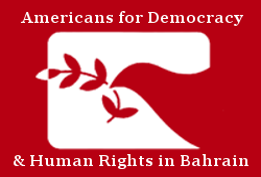
Member(s)
Americans for Democracy and Human Rights in Bahrain
on 7 January 2022
Americans for Democracy & Human Rights in Bahrain (ADHRB) fosters awareness of and support for democracy and human rights in Bahrain and Gulf Cooperation Council Countries (GCC). ADHRB has launched an Anti-Death Penalty Campaign during the summer of 2020 which involved local, national, and international engagements to advocate and lobby for the abolition of the […]
2022
Bahrain
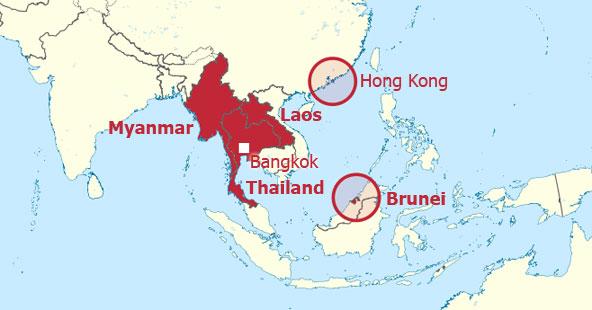
Article(s)
Moving away from the death penalty in Asia
By Sandra Babcock (DeathPenaltyWorldwide.org) in Bangkok, on 25 October 2013
Following up on the World Day Against the Death Penalty, successive meetings in Thailand and in China highlight decreasing support for capital punishment among Asian governments and public opinion.
2013
Brunei Darussalam
China
Japan
Lao People's Democratic Republic
Moratorium
Myanmar
Public Opinion
Thailand
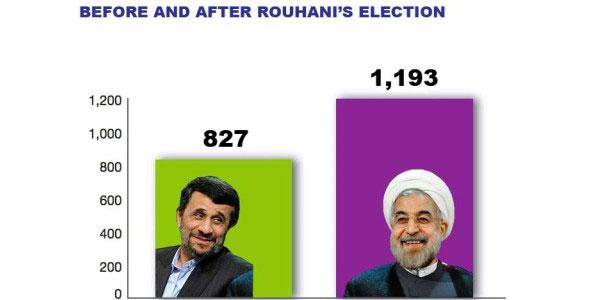
Article(s)
At least 1,193 executions since Hassan Rouhani’s election as president in Iran
on 13 March 2015
The annual report on the death penalty in 2014 shows that the Iranian authorities have executed more than 1193 people since the election of President Rouhani in June 2013. This is an average of more than two executions every day.
2015
Iran (Islamic Republic of)
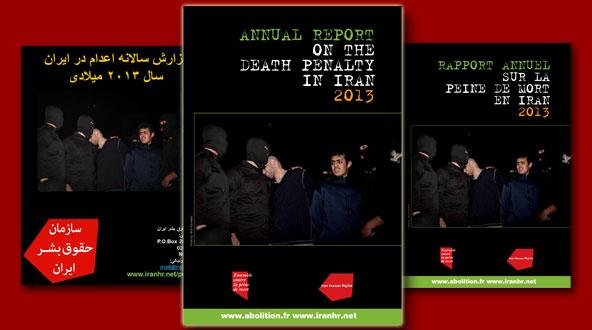
Article(s)
World Coalition members call for increased scrutiny of Iran
By Thomas Hubert, on 31 March 2014
The UN has renewed the mandate of its special rapporteur on Iran as a new IHR/ECPM annual report exposes rising execution numbers since increased engagement between President Rohani and the West.
2014
Iran (Islamic Republic of)
Page(s)
About the Library
on 4 December 2020
For a resource to be placed in the library, two main criteria need to be satisfied. Firstly, the resource needs to be substantially based on the death penalty or shed light on a particular issue relevant to the death penalty.Secondly, the resources need to be published after the year 2000, to ensure that only the […]
2020
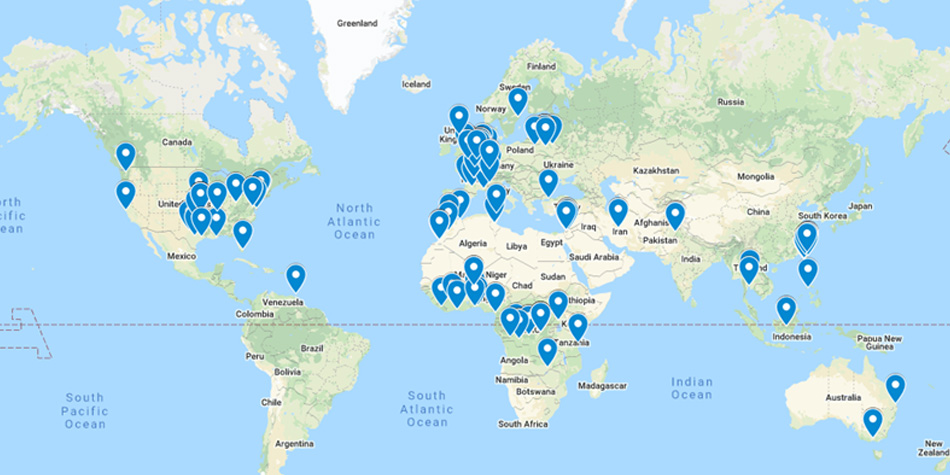
Article(s)
Take Action for World Day 2023!
By World coalition against the death penalty, on 20 September 2023
Take action now! The 21st World Day Against the Death Penalty is an excellent opportunity to publicly oppose the use of this inhumane punishment and to support those who are fighting for its abolition all over the world.
2023
Cruel, Inhuman and Degrading Treatment and Punishment
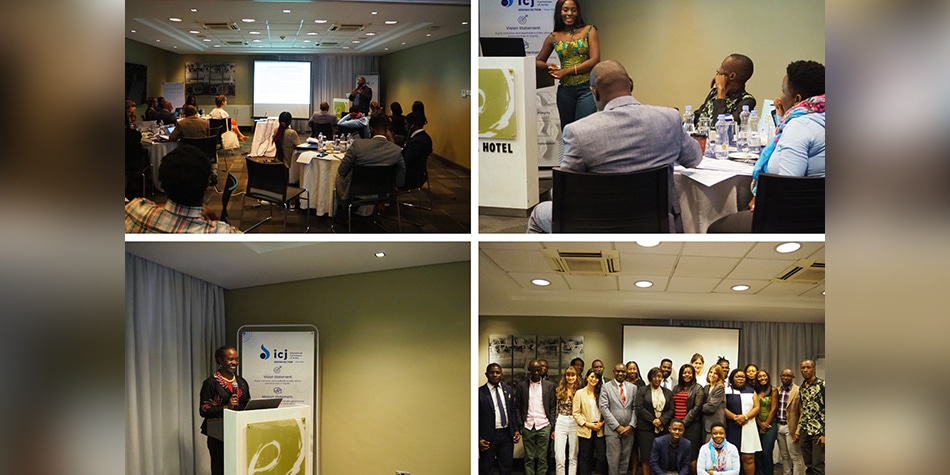
Article(s)
East African Seminar on Best Practices in Kenya: A Key Gathering for the Abolitionist Movement on the Continent
By Wendy Adouki, World Coalition Against the Death Penalty, on 15 August 2023
A privileged moment to exchange on the different abolitionist dynamics in Africa As part of the Africabolition project, the World Coalition Against the Death Penalty (World Coalition) and FIACAT (the International Federation of ACATS) organized a seminar for English-speaking African members from 19-26 June, 2023 in Nairobi, Kenya.
2023
Kenya
Trend Towards Abolition

Article(s)
The international responsibility of States
By Pierre Désert, on 25 June 2008
When a State ratifies a treaty, it undertakes to respect the undertakings that it has made before the whole of the international community. If it fails to meets its obligations and goes against the provisions of the treaty, it can be held responsible at international level.
2008
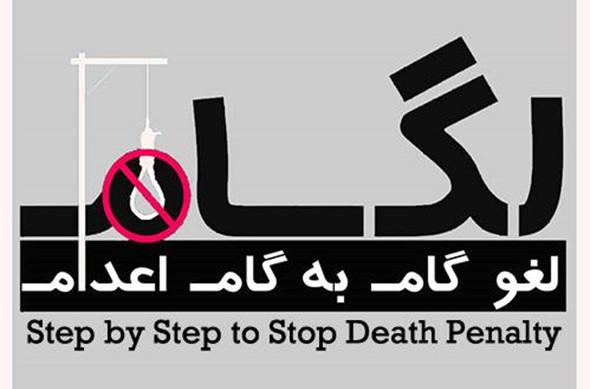
Article(s)
Iran’s brave human rights defenders and their struggle against the death penalty
By Amnesty International, on 5 March 2018
As the world moves away from the death penalty, Iran continues to execute hundreds of people every year and comes second only to China in the number of executions carried out annually. Amnesty International recorded nearly 1,000 executions in Iran in 2015 and at least 567 in 2016.
2018
Iran (Islamic Republic of)
Article(s)
Indonesian activists face upward death penalty trend
on 10 February 2009
Indonesia-based researcher Dave McRae finds that a core group of abolitionists are battling a rise in the number of executions, death sentences and death row inmates in the country.
2009
Cruel, Inhuman and Degrading Treatment and Punishment
Drug Offenses
Indonesia
Public Opinion
Article(s)
Amnesty charts death penalty world map and vows to remove Belarus from it
on 25 March 2009
World Coalition member Amnesty International has released its annual statistics on the death penalty and launched a campaign against capital punishment in Belarus.
2009
Belarus
Belarus
China
Iran (Islamic Republic of)
Pakistan
Saudi Arabia
United States
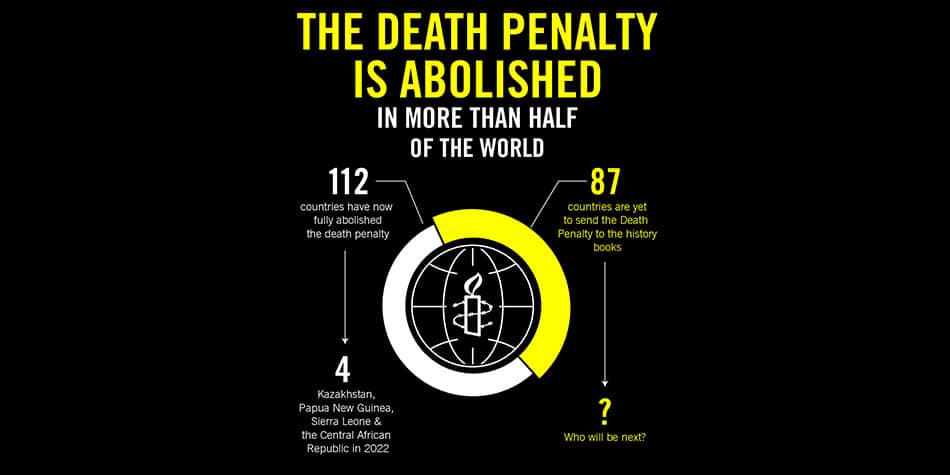
Article(s)
Increase in the number of executions, but clear progress toward abolition in 2022
By World coalition against the death penalty, on 18 September 2023
On 16 May, Amnesty International published their annual report on the global use of the death penalty, which shows the overall number and trends in sentencing and executions in 2022.
2023
Trend Towards Abolition

Article(s)
Singapore: Authorities must end executions and stop targeting anti-death penalty activists to curb criticism
By World Coalition Against the Death Penalty, on 28 August 2024
We, the undersigned seven organizations, are gravely concerned by developments in Singapore since the beginning of August 2024, which has seen the authorities carry out two executions in violation of international safeguards on the death penalty, as well as limiting the right to freedom of expression of the Transformative Justice Collective, a non-governmental organization who […]
2024
Singapore
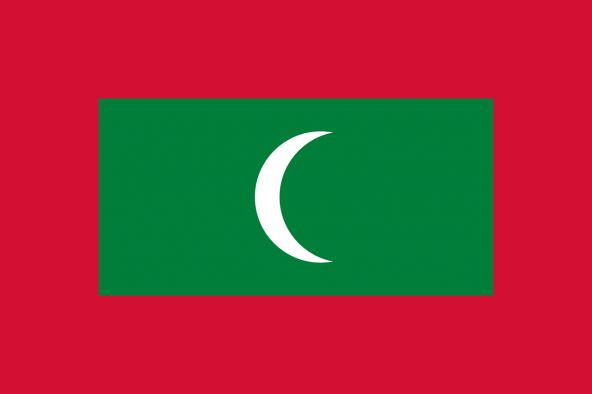
Article(s)
Civil society steps up against the end of a 60-year moratorium in the Maldives.
By Lorène du Crest, on 21 March 2017
Since the November 2013 elections, the Maldives have been moving towards the adoption of severe legal measures. On April, 27th 2014, the government decided to put an end to a 60-year moratorium.The civil society of Maldives is mobilizing against this worrying situation.
2017
Fair Trial
Juveniles
Maldives
Moratorium

Article(s)
Glossary of the Second Optional Protocol
By Pierre Désert, on 25 June 2008
From “Acceptance” to “Treaty”, discover the vocabulary of international law and get a clearer picture of the Second Optional Protocol.
2008

Article(s)
Calling on international bodies to condemn drug executions in Saudi Arabia and seek to stop them
By European Saudi Organization for Human Rights, on 1 December 2022
The European Saudi Organization for Human Rights and Harm Reduction International, and the World Coalition Against the Death Penalty along with 32 other NGOs have called on the International Narcotics Control Board and the United Nations Office on Drugs and Crime to act on urgent measures in response to the series of drug-related executions carried […]
2022
Drug Offenses
Saudi Arabia

Article(s)
UN High Level Panel on the death penalty and limitation to the most serious crimes
By World coalition against the death penalty, on 14 March 2023
On February 28 2023, the United Nations (UN) Human Rights Council held its biennial high-level panel on the issue of the death penalty.
2023
Public Opinion
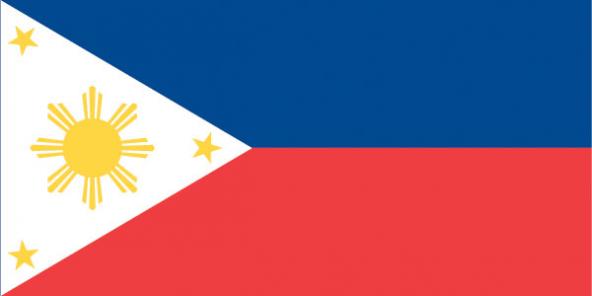
Article(s)
Philippines: House of Representatives must uphold international law obligations ahead of first death penalty vote
By Amnesty International & other organisations, on 19 February 2017
Nine international organisations are calling upon the Philippines to uphold its international obligations and not to restore death penalty in the country.
2017
Cruel, Inhuman and Degrading Treatment and Punishment
Philippines
Public Opinion
Article(s)
Teaching abolition in Taiwan
on 9 December 2009
Tsou Tzung Han is a Taiwanese teacher who actively took part in educational activities organised around World Day Against the Death Penalty. He writes about his experience with his students.
2009
Public Opinion
Taiwan
Taiwan

Article(s)
Philippines: one step forward in the reintroduction of the death penalty
By Lorène du Crest, on 3 March 2017
The Philippines are a step closer to the reintroduction of the death penalty, violating their international obligations.
2017
Drug Offenses
Philippines
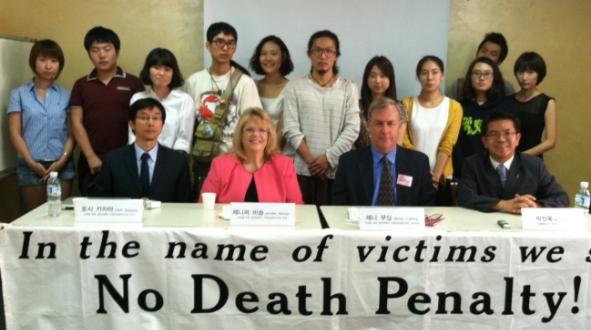
Article(s)
South Korea’s 5,000th day without an execution an opportunity for abolition
By Martin Carbonell with ADPAN and MVFHR, on 8 September 2011
8th September 2011 marks the 5,000th day without executions in South Korea. Houng-oh Kim, a member of the National Assembly and former Speaker, is aiming to introduce a new bill abolishing the death penalty to mark this occasion.
2011
Cruel, Inhuman and Degrading Treatment and Punishment
Moratorium
Republic of Korea

Jobs
Consultant for an external evaluation for our “Leave no woman on death row”
on 1 August 2024
External evaluation of the impact of the project “Leave no woman on death row – Raising awareness of the gender-based and intersectional discrimination faced by women, men and gender non-conforming people on death row worldwide, in order to advocate for the total abolition of the death penalty”. (2022-2025) Presentation of the World Coalition Against the […]
2024
Document(s)
Tanzania Human Rights Report – 2017 ‘Unknown Assailants’: A Threat to Human Rights
By Legal and Human Rights Centre, on 8 September 2020
2020
NGO report
United Republic of Tanzania
More details See the document
“Unknown Assailants: A Threat to Human Rights”So is named The Tanzania Human Rights Report of 2017 released by the Legal and Human Rights Centre (LHRC).This report was published on April, 25th 2018 and it enlights for the fifteenth time the major human rights violation in Tanzania. This report, while it deals with human rights violation in Tanzania concerning civil and politial rights, freedom of violence, freedom of expression, etc, also presents some issues due to these violations such as the right to participate in governance, particularly the right to participate in political life, which are deny.
- Document type NGO report
- Countries list United Republic of Tanzania
- Themes list Death Penalty, Statistics, Country/Regional profiles,
Document(s)
The Death Penalty in Japan: A report on Japan’s legal obligations under the International Convenant on Civil and Political Rights and an assessment of public attitudes to capital punishment
By Saul Lehrfreund / Death Penalty Project, on 8 September 2020
NGO report
Japan
More details See the document
This report was commissioned by the Death Penalty Project in order to assess Japan’s legal obligations on the use of the death penalty under the ICCPR, and to examine the related subject of public attitudes toward capital punishment in Japan.
- Document type NGO report
- Countries list Japan
- Themes list International law, Public opinion,
Document(s)
Moratorium on the use of the death penalty. Report of the Secretary-General (2008)
By United Nations, on 8 September 2020
United Nations report
arruzh-hantesfrMore details See the document
The present report surveys respect for the rights of those sentenced to death as set out in the international human rights treaties and the guidelines established by the Economic and Social Council in 1984. Drawing on contributions of Member States, the report surveys various motivations for establishing a moratorium on or abolishing the death penalty, as well as those for retaining the death penalty. It also includes up-to-date statistical information on the worldwide use of the death penalty, including moratoriums established in States that have not abolished this form of punishment, together with relevant developments since the sixty-second session of the General Assembly. The report concludes by confirming the global trend towards abolition of the death penalty, the important role played by moratoriums in those States that seek to abolish it and possibilities for further work on the issue.
- Document type United Nations report
- Themes list Moratorium ,
- Available languages وقف استخدام عقوبة الإعدام :تقرير الأمين العامМоратории на применение смертной казни: Доклад Генерального секретаря暂停使用死刑: 秘书长的报告Moratoria del uso de la pena de muerte : Informe del Secretario GeneralMoratoires sur l'application de la peine de mort: Rapport du Secrétaire général
Document(s)
Capital punishment and implementation of the safeguards guaranteeing protection of the rights of those facing the death penalty: Report of the Secretary-General
By United Nations, on 1 January 2005
2005
United Nations report
arruesfrzh-hantMore details See the document
The present report, prepared pursuant to Economic and Social Council resolutions 1754 (LIV) of 16 May 1973 and 1995/57 of 28 July 1995, and Council decision 2005/247 of 22 July 2005, is the eighth quinquennial report of the Secretary-General on capital punishment. It covers the period 2004-2008 and reviews developments in the use of capital punishment. The report confirms a very marked trend towards abolition and restriction of the use of capital punishment in most countries. The rate at which States that retained the death penalty at the start of the quinquennium have abolished its use either in law or in practice is comparable with that of previous reporting periods, and may even be accelerating slightly. Moreover, countries that retain the death penalty are, with rare exceptions, significantly reducing its use in terms of numbers of persons executed and the crimes for which it may be imposed. Nevertheless, where capital punishment remains in force, there are serious problems with regard to the respect of international norms and standards, notably in the limitation of the death penalty to the most serious crimes, the exclusion of juvenile offenders from its scope, and guarantees of a fair trial.
- Document type United Nations report
- Themes list Trend Towards Abolition,
- Available languages عقوبة الإعدام وتنفيذ الضمانات التي تكفل حماية حقوق الذين يواجهون عقوبة الإعدام : م ذكّرة من الأمين العامСмертная казнь и применение мер, гарантирующих защиту прав тех, кому грозит смертная казнь : Доклад Генерального секретаряLa pena capital y la aplicación de las salvaguardias para garantizar la protección de los derechos de los condenados a la pena de muerte : Informe del Secretario GeneralPeine capitale et application des garanties pour la protection des droits des personnes passibles de la peine de mort: Rapport du Secrétaire général死刑和保护死刑犯权利的保障措施的执行情况: 秘书长的报告
Document(s)
Silently Silenced: State-Sanctioned Killing of Women
By Eleos Justice, Cornell Center on the Death Penalty Worldwide , on 30 March 2023
2023
Academic report
Women
More details See the document
Silently Silenced: State-Sanctioned Killing of Women examines States’ involvement in ‘feminicide’. Feminicide is understood as the gender-motivated killing of women and girls that States actively engage in, condone, excuse, or fail to prevent. We use the term ‘feminicide’ to refer to the various forms of State-sanctioned killing of women and girls. In this report, we outline States’ direct involvement and complicity in the killings of women and girls and explain these deaths as a product of gendered forms of structural violence upheld and sustained by the State. We examine 3 types of feminicide: gender- related killings of women directly perpetrated by the State, such as the death penalty and extrajudicial killings; gender-related killings of women committed by non-State actors that are excused or condoned by the State; and gender-related killings of women that the State failed to prevent.
- Document type Academic report
- Themes list Women
Document(s)
Mobilization Kit World Day 2023
By World coalition against the death penalty, on 12 June 2023
2023
Campaigning
World Coalition
frMore details Download [ pdf - 864 Ko ]
For the 21th year in a row, the World Coalition Against the Death Penalty is calling for local initiatives and world-wide actions that shine a spotlight on the abolition of the death penalty. The goal of this Mobilization Kit is to inform of this year’s objectives as well provide ideas of activities that boost the global abolitionist goal. This year’s World Day is dedicated to people who, during the process of being sentenced to death, or following the sentence of their death, have been victims of torture.
- Document type Campaigning / World Coalition
- Available languages Kit de mobilisation Journée mondiale 2023
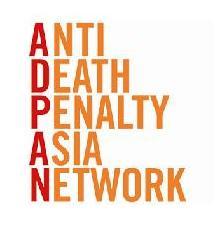
Member(s)
Anti-Death Penalty Asia Network (ADPAN)
on 30 April 2020
The Anti-Death Penalty Asia Network (ADPAN) was founded in Hong Kong on the World Day against the Death Penalty in 2006. In 2014, at its first General Meeting in Taipei, Taiwan, Anti-Death Penalty Asia Network (ADPAN) members approved ADPAN’s Constitution, and ADPAN’s first Executive Committee was elected. ADPAN, an independent Asia-Pacific network committed to working […]
2020
Malaysia
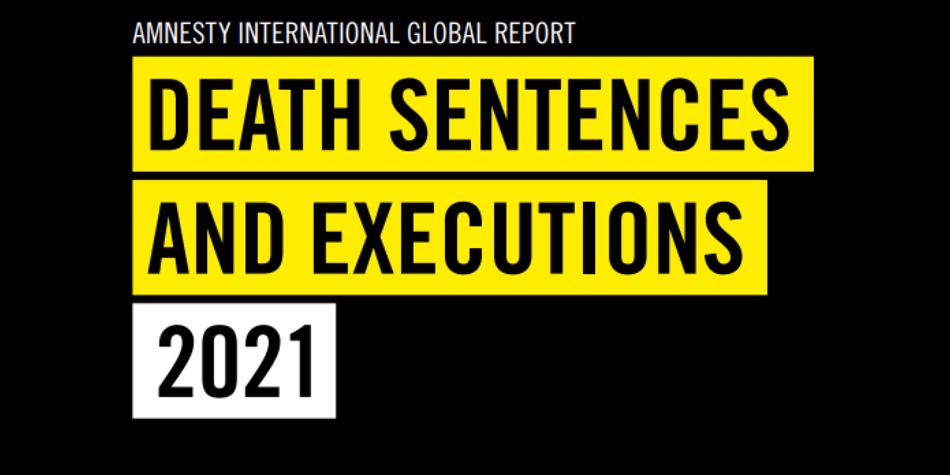
Article(s)
Executions on the rise, but progress toward abolition in 2021
By Amnesty International, on 9 June 2022
On 24 May, Amnesty International published their annual report on the global use of the death penalty, which shows the overall sentences and executions in 2021 Global figures Amnesty International recorded 579 executions in 18 countries in 2021, an increase of 20% from the 483 recorded in 2020. Despite these increases, the 2021 global executions figure constitutes the second-lowest figure recorded […]
2022
Death Row Conditions
Trend Towards Abolition
Article(s)
ACHRS Report: the death penalty in the Arab World in 2007
on 9 May 2008
The Jordan-based Amman Centre for Human Rights has released its second annual report on the status of the death penalty in Arab countries. The report gives both an overview of the region and a detailed look at each Arab state.
2008
Jordan
Document(s)
Respect for Minimum Standards? Report on the Death Penalty in China
on 1 January 2020
2020
NGO report
China
More details See the document
- Document type NGO report
- Countries list China
Document(s)
Annual Report on Human Rights 2009
By United Kingdom Foreign & Commonwealth Office, on 1 January 2010
2010
Government body report
More details See the document
During 2009, we continued to strive for the global abolition of the death penalty. We made our opposition to it clear in our engagement with countries around the world, both bilaterally and in partnership with the EU. Bilaterally, we continue to fund work in the Caribbean, Africa, the Middle East and Eastern Asia from our Human Rights Strategic Programme Fund. This includes working with key NGO partners, such as the Death Penalty Project and the Centre for Capital Punishment Studies at Westminster University in London. We also continued to raise the death penalty directly with governments, including China, Jamaica and the US.
- Document type Government body report
- Themes list Trend Towards Abolition,

